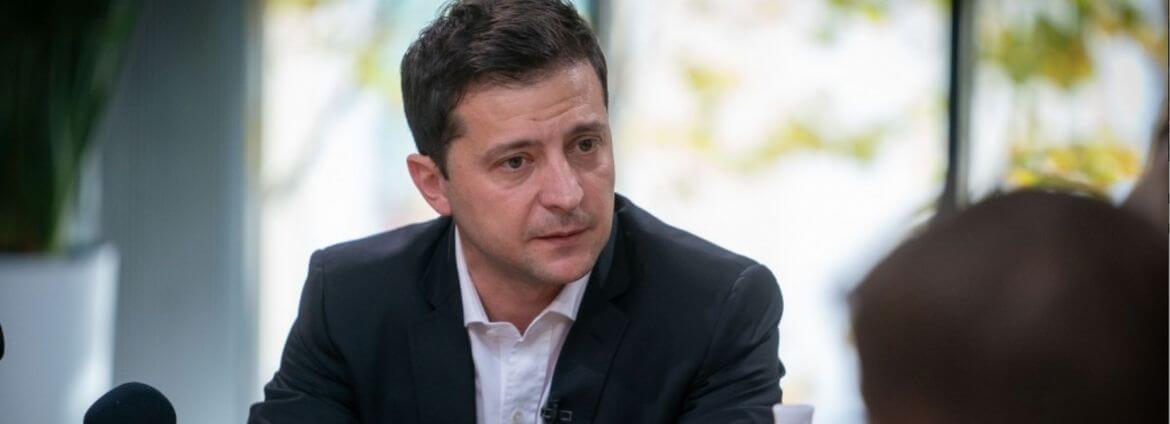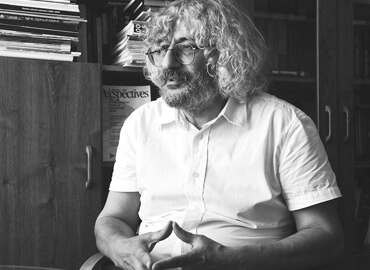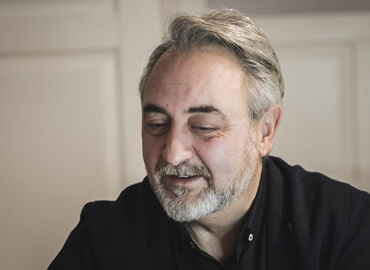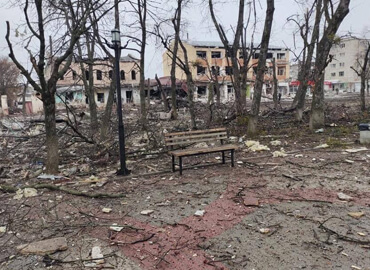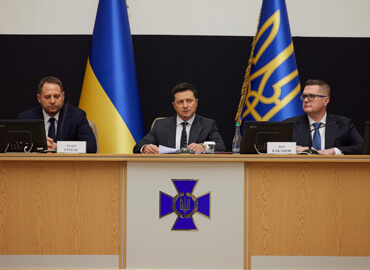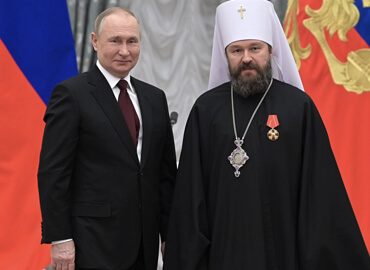Alexander Lukashenko may well have appreciated Vladimir Zelensky’s last press conference. At the very least, similar notes have sounded in his own performances more than once. But if we overlook the humor here then the situation looks unpleasant for Ukraine.
During a hastily organized press conference, the President of Ukraine managed to publicly voice his suspicions that the country’s richest citizen, Rinat Akhmetov, was involved in a coup, to weigh in on the work of intelligence services and the government, and to show dialectical unity and the struggle of opposites in declaring that he did not decide whether to fight for a second presidential term while emphasizing that he will not cling to power. Zelensky reacted extremely harshly to the questions of journalists who were invited to engage with him and not just to serve as decorations at the table at which the president sits. The head of the Ukrainian state does not always understand why he is becoming the object of criticism, while making it clear that preparations are underway for a dialogue with the Kremlin at the level of heads of administrations.
It is not only Petro Poroshenko who, with his constant remote attacks against his predecessor, is talking about Zelensky’s noticeable nervousness in the current political situation. There is something else. In his 5.5-hour conversation with the press he made almost no mention of his brainchild, the Crimean Platform, as if the question of the de-occupation of Crimea had already been removed from the agenda. It is unlikely that anyone will dispute the right of the country’s president to make political statements about the unacceptability of oligarchs buying off politicians and leaders/mouthpieces of public opinion but singling out specific individuals when talking with journalists has hardly become Zelensky’s strong point. And it was a misstep for the head of state to assert that journalists had deprived him of a quiet life.
It should be noted that long hours of talking to the press is a feature of post-Soviet politics – a combination of the desire to maximize news attention and unwillingness to regularly build channels of communication.
No, Zelensky did not have a «dialogue with the country» in the style of Putin or Lukashenko, but his nervousness was noted not only in Washington, where Joe Biden expressed concern about the possibility of a coup in Ukraine.
It is likely that information about this has already appeared in Washington via diplomatic channels.
The Kremlin has already reacted to Vladimir Zelensky’s statement that the West wants contact between their and the Russian presidential administrations. Vladimir Putin in the evening of that same day held a meeting with permanent members of the Security Council, in which Dmitry Kozak also took part. He will undoubtedly be in contact with the chief of Zelensky’s office, Andriy Yermak. And in these interactions is a latent warning given in advance: part of the Ukrainian society suspects Yermak is a traitor (not only because of the Wagnerian case), so it will not be easy for Kyiv to suggest any possible agreements with Russia, especially in the face of a noticeable drop in Zelensky’s rating.
The Kremlin also has another VIP agitator, Alexander Lukashenko. It should be recalled that during a meeting with migrants in Bruzgi on November 26, he said that migrants were already trying to enter the European Union through Ukraine. There had been such cases before, but they were not on a mass scale and these immigrants typically from Asia and Africa became victims of swindlers in Ukraine. Lukashenko’s statements indicate more the possibility of probing Ukrainian authorities’ reaction with the help of migrants who, contrary to logic, will try to go to the EU through Ukraine (Ukraine has a readmission agreement with the EU), and supported by public statements.
It should be noted that Lukashenko not long ago announced a certain «Putin plan» capable of resolving the conflict in Donbass, which Petro Poroshenko rejected.
Therefore, one should not be surprised if, through official channels or on television, Lukashenko suggests himself again as a mediator for the settlement of the conflict in Donbass. This will mean that Minsk, as a locus for the negotiation process, has finally lost its significance for the Kremlin, and therefore Russia will conduct a «conversion» of its loyal ally. Two weeks ago, the Russian Foreign Ministry published diplomatic correspondence with German and French colleagues regarding the preparation of the Normandy format summit. It is not worth expecting piety for Belarus and its power that is not recognized by most European countries.
Belarus is a UN member and stood at the origins of this organization, which in the eyes of Russia gives it a certain additional weight, primarily functional. It is one thing when the Kremlin masks its intentions with the help of the so-called DPR and LPR, and quite another thing when it is shielded by a formal sovereign state with which it is unable to create a Union State. Lukashenko seems to understand this quite well, therefore he is focused on preserving the formal attributes of sovereignty.
Finally, it should be emphasized that discrediting democratic procedures is one of the key goals of the Kremlin. It gleefully looks on both the authoritarian hints given by Vladimir Zelensky and the genuine authoritarianism of Alexander Lukashenko. For Putin, any mistake or oversight is reproached and charged with guilt.
Yauhen MAGDA, Institute of World Politics, Ukraine.
The article was prepared by iSANS specially for Reform.by.
Материал доступен на русском языке: Зеленский – Лукашенко: опасное совпадение



